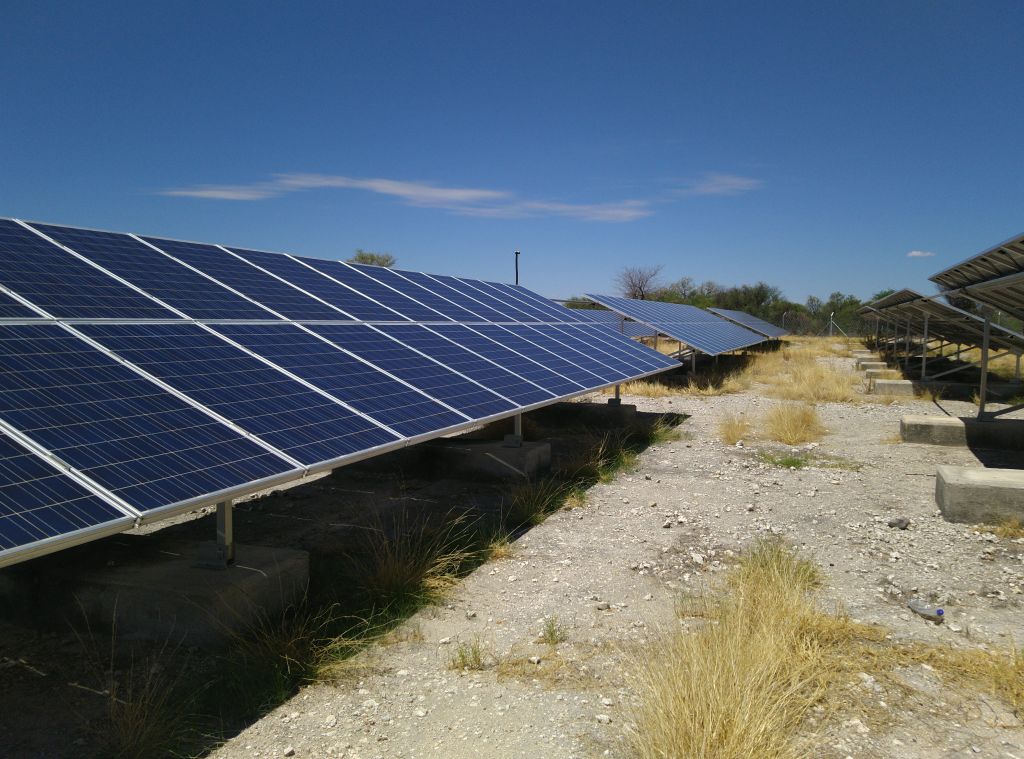Pietari Keskinen, Aalto University
Unemployment is a big problem in Namibia. One of the ways that has been proposed to alleviate it is to support entrepreneurship [1]. However, becoming a successful entrepreneur is also difficult when the resources are scarce, as they might be in many areas of Namibia. One of the issues the potential entrepreneurs face is the lack of access to needed technologies [2].
One of the Fusion Grid work packages is directly linked to promotion of entrepreneurship. Gaining electricity and access to mobile services gives the project beneficiaries resources to start new business activities, or to enhance already existing ones. We have examples of this coming directly from our test houses. One of the residents have used the electricity to power tools. He has started a small scale business of building and selling furniture, and hopes to hire employees to help him in the future. Another resident from another house creates flower arrangements needed in weddings, and also her work has become more efficient when she got lightning to her house.
However, the connection to Internet allows even more possibilities for budding entrepreneurs. Having access to trainings and better business opportunities might be even more important and efficient support for entrepreneurs than direct from government [3]. Mobile connections allow the entrepreneurs to access training materials in Internet, as well as other relevant services such as crowdfunding [4].
During the Fusion Grid project we have tried to found ways to ease the entrepreneurs access to the free services that would be available for them. We have curated a list of resources that can be easily found when the Fusion Grid WiFis are used to access Internet. We have also attempted to define the help that the potential entrepreneurs would need to access the digital services into a concrete role that could be taught to some members of the community [4].
Our research during this project have indicated that the digital services indeed have a promise for creating better livelihoods in Global South [5], and that there are business models that could efficiently use the developing connections [6]. We hope that the resources that Fusion Grid project has brought can be used productive manner to create jobs and prosperity to both the residents of our test houses but also wider into their communities.
[1] Government of the Republic of Namibia: Office of the President: Harambee Prosperity Plan. (2016).
[2] Warnecke, T.: Social Innovation, Gender, and Technology: Bridging the Resource Gap. J. Econ. Issues. 51, 305–314 (2017). https://doi.org/10.1080/00213624.2017.1320508.
[3] Brixiová, Z., Ncube, M., Bicaba, Z.: Skills and Youth Entrepreneurship in Africa: Analysis with Evidence from Swaziland. World Dev. 67, 11–26 (2015).
[4] Arvila, N., Winschiers-Theophilus, H., Keskinen, P., Laurikainen, R., Nieminen, M.: Enabling successful crowdfunding for entrepreneurs in marginalized communities. In: Proceedings of the 23rd International Conference on Academic Mindtrek. pp. 45–54. ACM, New York, NY, USA (2020).
[5] Keskinen, P., Winschiers-Theophilus, H.: Worker Empowerment in the Era of Sharing Economy Platforms in Global South. In: Proceedings of the 16th Participatory Design Conference on Exploratory Papers, Interactive Exhibitions, Workshops – PDC ’20 (2020).
[6] Keskinen, P., Arvila, N., Winschiers-Theophilus, H., Nieminen, M.: The Effect of Digital Community-Based Tourism Platform to Hosts’ Livelihood. In: Evolving Perspectives on ICTs in Global Souths – 11th International Development Informatics Association Conference, IDIA 2020, Macau, China, March 25–27, 2020, Proceedings. pp. 3–16. Springer International Publishing, Macau, China (2020).
